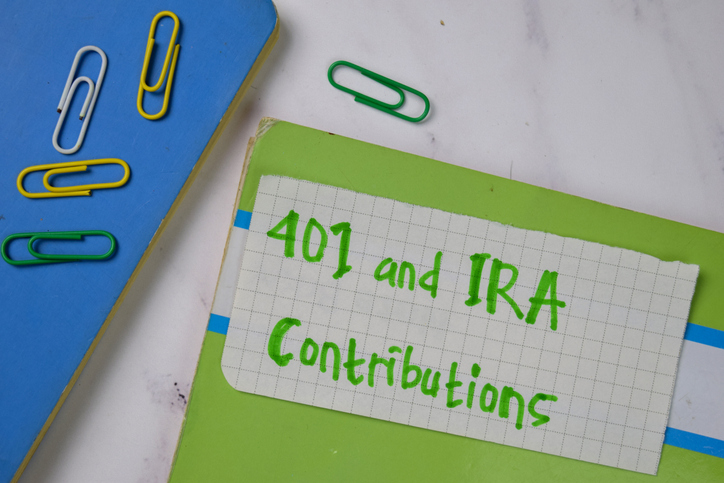A recent announcement from the IRS (IR-2023-62) modifies and clarifies Roth IRA catch-up payment requirements for contributors who are aged 50 or older. IR-2023-62 delayed mandatory Roth IRA catch-up payments for high income taxpayers above the age of 50 earning more than $145,000 until 2026.
Recent legislation (SECURE 2.0 Act, also known as the Consolidated Appropriations Act of 2023) had required catch-up payments or contributions to be made to a Roth IRA using “post tax” funding beginning in 2024. In effect, IR-2023-62 provides Roth IRA plan participants to continue under the old rules prior to the SECURE 2.0 Act through December 31, 2025.
Existing IRA and 401k Catch Up Provisions
Presently, once a taxpayer reaches the age of 50 they are able to make “catch-up contributions” to a Roth IRA, 401(k), Roth 401(k), 403(b) or other qualifying retirement savings plans available through their employer. The annual catch-up contribution may be up to $1,000 for a traditional or Roth IRA (which increased the total potential contribution to these IRAs in 2023 to $7,500).
Those who contribute to any 401(k), Roth 401(k), 403(b) or other qualifying savings plan may contribute a catch-up payment of $7,500 per year in addition to normal pre-tax contributions.
Associated Modifications to SECURE 2.0 (Consolidated Appropriations Act of 2023)
As the IRS modifies and clarifies Roth IRA plan catch-up payment requirements and taxation we should begin with a review of what was passed under the original SECURE 2.0 Act of 2023. This sweeping Act of Congress established a starting date of January 1, 2024 for new regulations that would have required those above the age of 50 who earn $145,000 or more to make catch-up contributions to a Roth IRA using post-tax income. (Those earning less than $145,000 will be exempt from this requirement).
So what has changed? Basically, qualifying taxpayers may continue under the old, pre-SECURE 2.0 Act, catch-up contribution regulations until January 1, 2026. This allows plan administrators additional time to implement the new Roth IRA Plan catch-up payment requirements.
The recent IRS Notice (IR-2023-62) also announced the IRS’ intention to issues future guidance on the implementation of Roth IRA catch-up payment requirements for high income taxpayers. There are still questions to be clarified such as those regarding plan participants who did not have FICA wages, pre-tax versus post-tax guidelines and unique situations where a qualifying taxpayer may experience income from more than one “participating employer.”
How Can Allen Barron Help You to Minimize Taxation While Building for Retirement?
How can you as an individual or married taxpayer or corporate entity minimize taxation while building a secure retirement? The integrated legal, tax, accounting and business advisory services of Allen Barron, Inc. and Janathan L. Allen, APC provide elegant domestic and international business and tax solutions to the challenges of those seeking to plan for the future. Ask about “transactional planning” and how Allen Barron can help you to structure how, when and where you realize income and losses in order to reduce taxation while protecting and preserving underlying accounts and assets.
We invite you to learn more about the integrated tax, legal, accounting and business consulting services of Allen Barron and contact us or call today to schedule a free consultation at 866-631-3470.





